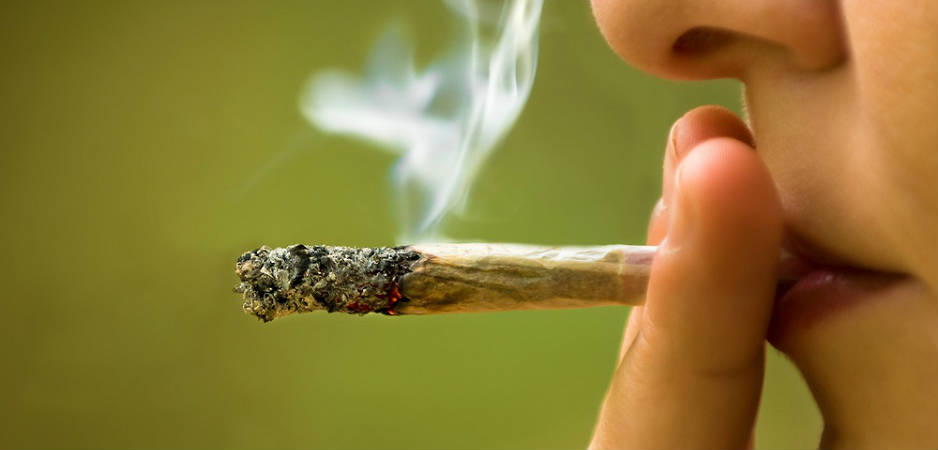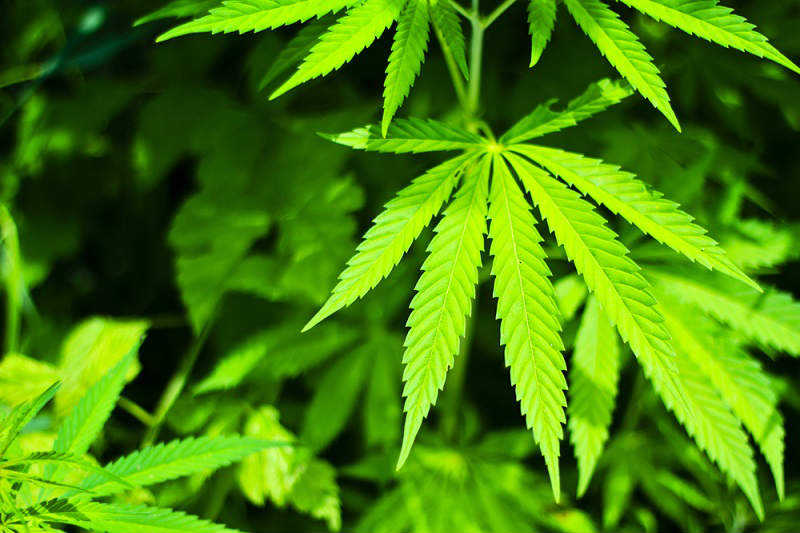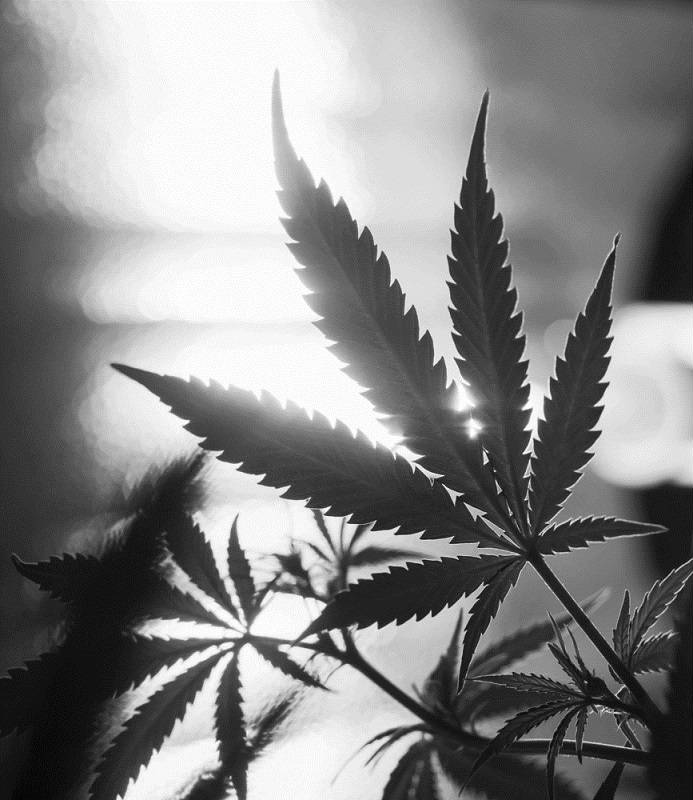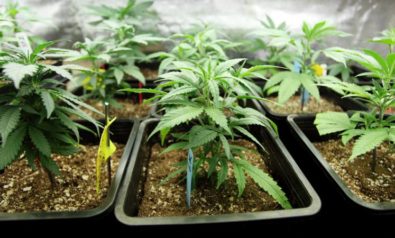The question is not whether we should legally regulate cannabis, but how and when.
The issue of cannabis legalization has moved decisively from the margins to the mainstream of political debate. Over recent years, Uruguay and four US states, as well as Washington DC, have decided to legalize cannabis for non-medical use, becoming the first jurisdictions in the world ever to do so. As these reforms demonstrate, there is now a growing recognition that the prohibition of cannabis is a counterproductive failure and that alternative approaches should be explored.
Prohibition and the so-called “War on Drugs” have not only failed to achieve their stated aims of reducing or eliminating drug supply and use, they have also actively caused harm. The United Nations Office on Drugs and Crime (UNODC), the very agency that enforces and oversees drug prohibition worldwide, has itself acknowledged that punitive, enforcement-led drug policies are generating a range of disastrous “unintended consequences.” (Although given how well-documented they are, they cannot really be called “unintended” — they are simply the negative consequences of prohibition.)
The first and most significant of these consequences, according to the UNODC, is “the creation of a lucrative and violent black market.” That prohibition would produce such a market is hardly surprising. Squeezing the supply (through enforcement) of products for which there exists a highly inelastic demand dramatically increases their price, creating an opportunity and profit motive for criminal entrepreneurs to enter the trade. Retail expenditure on cannabis — which forms a significant part of this trade, given its status as the world’s most widely used illicit drug — is estimated to be somewhere between €40-120 billion, providing a vast, untaxed income stream for criminal profiteers.
War on Drugs
Aside from being used to corrupt institutions and fund other forms of organized crime, this money fuels violence and conflict, as rival gangs fight for a greater share of the market and clash with law enforcers who try to curtail their operations. In the same way that alcohol prohibition in the US gave rise to gangsters like Al Capone, the prohibition of cannabis (and other drugs) has empowered and enriched cartels and other criminal networks. In some producer and transit regions, such as Latin America, these groups have the power and resources to act with impunity. Through the policy of cannabis prohibition, governments have, in effect, gifted control of a lucrative and risky market to organized criminals — in other words, to those least qualified or likely to manage it responsibly.
Abdicating control of the cannabis trade in this way creates not only crime costs, but health costs too. Cannabis is, in relative terms, a low-risk drug. But no drug is risk-free, and prohibition magnifies these risks by ensuring that drug production is unregulated, conducted without any responsible oversight. Under prohibition, producers of cannabis do not test for levels of pesticide, mould, bacteria or other microorganisms that can be harmful to health, and the market is driven by economic processes that encourage the creation and use of more potent — and more profitable — strains of the drug. Moreover, those who purchase cannabis from illicit dealers can have no reliable knowledge of what it is they are actually consuming. Without health warnings and information on likely effects, novice users are at greater risk of having adverse experiences.
Cannabis users are put at further risk by criminalization. In the US, for example, 750,000 people are arrested every year for cannabis offences, with roughly 90% of those arrests for simple possession. Those convicted can find their employment opportunities severely restricted, be denied benefits, housing, food stamps or student loans, and have their driving license suspended. By criminalizing a consensual activity performed by millions of people around the world, cannabis prohibition promotes social exclusion and marginalizes individuals based on a personal lifestyle choice.
The criminalization of cannabis possession appears all the more pernicious when one considers the discriminatory and disproportionate way in which the law is enforced. Cannabis prohibition has, in many places, been used as a means of targeting certain populations — in particular, ethnic minorities. Indeed, recent research has revealed that, across London, black people are charged for possession of cannabis at five times the rate of white people, despite rates of cannabis use being significantly higher among white people.
Taken together, the costs of cannabis prohibition make a convincing case for legalization. Removing penalties for cannabis possession and permitting some form of legal supply of the drug would hugely reduce, and in some cases eliminate, the problems outlined above. But for some, there is still a degree of apprehension about embracing such reform. This is, in large part, due to misunderstandings about what legalization actually entails.
Firstly, the term “legalization” itself is not particularly accurate or instructive. Legalization is merely a process — essentially, of making something illegal, legal — but what most drug policy reform advocates wish to see is “legal regulation.” Legal regulation is the end point of this process, referring to a system of rules that govern the product or behaviors in question. Consequently, just calling for the legalization of cannabis could reasonably be mistaken as a proposal for minimal or no controls on the production, supply and use of the drug. In contrast, “legal regulation” gives a better, more accurate indication that, once legal, cannabis will be subject to a range of strict controls.
Nevertheless, legal regulation is still sometimes perceived as a radical step, or a dangerous leap into the unknown. But the evidence demonstrates that, in fact, it is prohibition that is the radical policy. The legal regulation of drug production, supply and use is far more in line with currently accepted ways of managing health and social risks in almost all other spheres of life. Extreme sports, the consumption of fatty foods, various sexual practices and countless other activities all carry risks — sometimes greater risks than illicit drug use — yet we do not criminalize those who engage in them. Instead, governments regulate (to varying degrees) such activities, and when they wish to dissuade people from taking excessive risks or encourage them to make healthier or safer lifestyle choices, they use public education, rather than punitive law enforcement.
Since legal drug regulation is, in conceptual terms, far from a radical idea (and is in fact the norm), devising an appropriate system for controlling the sale and use of cannabis is actually a rather prosaic task. It involves consideration of, among other things, licensing requirements, tax rates, production processes, potency limits, product packaging and marketing controls — the kind of mundane details that have to be decided for any trade.
Under Regulation
Transform Drug Policy Foundation has produced a guide that analyses and offers recommendations on precisely these — and other — elements of the cannabis trade. The result is a concrete vision for how cannabis can be legally regulated in a way that promotes public health and wellbeing.
Hence rather than go down the same route as alcohol and tobacco — which have historically been subject to minimal regulatory controls — the report concludes that cannabis should be strictly regulated, with governments taking an active role in managing any legal market for the drug. Thus, contrary to some characterizations of this type of reform as a “liberalization” or “relaxation” of the law, legal regulation is in fact the opposite: It is about bringing the cannabis trade within the law, so that strict controls, which are currently absent, can be applied.
Transform’s research suggests that such controls should include the following kinds of measures: a comprehensive ban on all forms of cannabis advertising, promotion or sponsorship; price controls to ensure the price of cannabis remains at or near current illicit-market prices; higher tax rates for higher-potency products; restrictions on the types of cannabis products that are made legally available; strongly enforced age-access controls to prevent under-18s purchasing cannabis; limits on the volume of cannabis that can be purchased per transaction; and a ban on sales of any other drugs (including alcohol and tobacco) via cannabis outlets.
The report also concludes that these controls should be applied within an overarching “regulated market model,” whereby a dedicated government agency acts as the bridge between licensed cannabis producers and vendors. Producers would compete to supply the agency with raw materials, and the agency would then distribute the cannabis to licensed retailers, under the kinds of conditions listed above. This model, therefore, allows for competitive commercial interaction at the point of production and supply, but crucially eliminates any incentives for profit-motivated efforts to increase consumption.
The threat of such an increase is one of the most commonly heard objections to legal regulation. The argument is that legal regulation will increase availability, and without criminalization to act as a deterrent, use will rise significantly. This is a legitimate concern, but one that is often overblown.
The available evidence demonstrates that criminalization has, at best, a marginal impact in deterring people from using drugs. Instead, rates of drug use are more likely to rise and fall in line with broader cultural, social or economic trends. This is the conclusion that research consistently comes to — that a country’s rates of drug use are influenced by factors other than its drug laws. How harsh those laws are does not seem to make much of a difference.
The clear benefits of legally regulating cannabis do not, therefore, have to come at the expense of dramatic increases in consumption. Reductions in crime and violence, improvements in health, fewer otherwise law-abiding citizens criminalized, significant financial savings, and many other gains are all within reach for governments that decide to reclaim control of the cannabis trade. And with more and more political leaders beginning to recognize these benefits, the question increasingly being debated is not whether we should legally regulate cannabis, but how and when.
We bring you perspectives from around the world. Help us to inform and educate. Your donation is tax-deductible. Join over 400 people to become a donor or you could choose to be a sponsor.
The views expressed in this article are the author’s own and do not necessarily reflect Fair Observer’s editorial policy.
Photo Credit: Stanimir G.Stoev / Sarra22 / Mr. Green / Shutterstock.com
3 comments
Leave a comment
You must be logged in to post a comment.
Support Fair Observer
We rely on your support for our independence, diversity and quality.
For more than 10 years, Fair Observer has been free, fair and independent. No billionaire owns us, no advertisers control us. We are a reader-supported nonprofit. Unlike many other publications, we keep our content free for readers regardless of where they live or whether they can afford to pay. We have no paywalls and no ads.
In the post-truth era of fake news, echo chambers and filter bubbles, we publish a plurality of perspectives from around the world. Anyone can publish with us, but everyone goes through a rigorous editorial process. So, you get fact-checked, well-reasoned content instead of noise.
We publish 2,500+ voices from 90+ countries. We also conduct education and training programs
on subjects ranging from digital media and journalism to writing and critical thinking. This
doesn’t come cheap. Servers, editors, trainers and web developers cost
money.
Please consider supporting us on a regular basis as a recurring donor or a
sustaining member.
Will you support FO’s journalism?
We rely on your support for our independence, diversity and quality.











maxwood
March 17, 2015
"The clear benefits of legally regulating cannabis do not, therefore, have to come at the expense of dramatic increases in consumption." Yes! In fact, benefits can be achieved by Increasing the number of users while greatly Decreasing consumption per user! This merely requires replacing the habit of "smoking a Joint" (often 500-mg or more per light-up) by 25-mg single tokes from a flexdrawtube one-hitter or other vaporizing device. (Thus the photo atop this article is unfortunate: "to children whose parents followed advice to keep them ignorant about cannabis, every Joint and every picture of a Joint is a $igarette advertisement... "-- gateway drug to nicotine addiction.) Instead of bureaucratic hovering over the individual and enforcing rules, regulation can be rationally built into the equipment used, in the form of Dosage Control. Consider the merit of requiring dispensaries to sell weed only to customers who show they possess a moderation utensil or buy one along with the cannabis. If this spreads over into the tobacco using population (1.2 billion worldwide, 6 million deaths a year) it could be the public health triumph of the century, winning honor and respect for wise, progressive cannabis users.
DH
March 17, 2015
I don't feel that it needs regulated. Farmers aren't regulated on how many crops they grow or who they sell to, what they charge or the grade/quality of their product. Them wanting to keep it at the market value it is now yet lower the potency is also wrong. No one that uses at today's prices is going to want to buy lower grade garbage at the same cost. The point in paying what they pay is they are paying for quality....losing quantity in the end but paying for a better product. If they mess with the grade of it, there will be a decline in sales as people don't want to spend top dollar for what is essentially 'dirt weed'. I've been around the block and the going rate right now is in the vicinity of $45-$55 for an eighth...keeping that in mind, for some reason what we know as an actual eighth is not the same for this as it is in cooking or weights or measures....don't ask me why. A typical eighth is I think 3.2 grams in 'weed speak' not what you would expect it to be, as an actual eighth of an ounce is 4 grams. Tell me who is going to spend that kind of money on scraps that don't have any potent effect. I think they need to really do the ground work and research better before doing anything with it. There also won't be an influx in use....you will just see the people who use it coming into the light and not hiding anymore for whatever reason. It wouldn't be influx, it would just be the same people but out in the open about it now. All that being said, being that I've been around the block a few times let me just say that in my opinion legalizing it would be the best thing, our jails are over-populated, we are arresting people for selling or possessing it and to me it isn't a harmful drug. I don't even consider it a drug. It grows on its own in the wild, it doesn't need tending and its been here longer than we have. It is one of the many medicinal herbs that are everywhere in nature. No one created it and its benefits far outweigh any of its downfalls, the downfalls being sleepy and hungry. But lets think about that for a minute...sleeping is when our body heals itself and is it so awful that perhaps a cancer patient eats and sleeps...something they can't do with man made medicine....I watched several members of my family succumb to cancer, they couldn't eat or sleep, so really is it so bad. Not to mention that our founding father grew it himself, the plant parts are productive for clothes and so many other things...really how bad is marijuana I ask you?
Evgeny Rogozin
March 16, 2015
I think it is time to legalize cannabis. Stop to feed mafia.